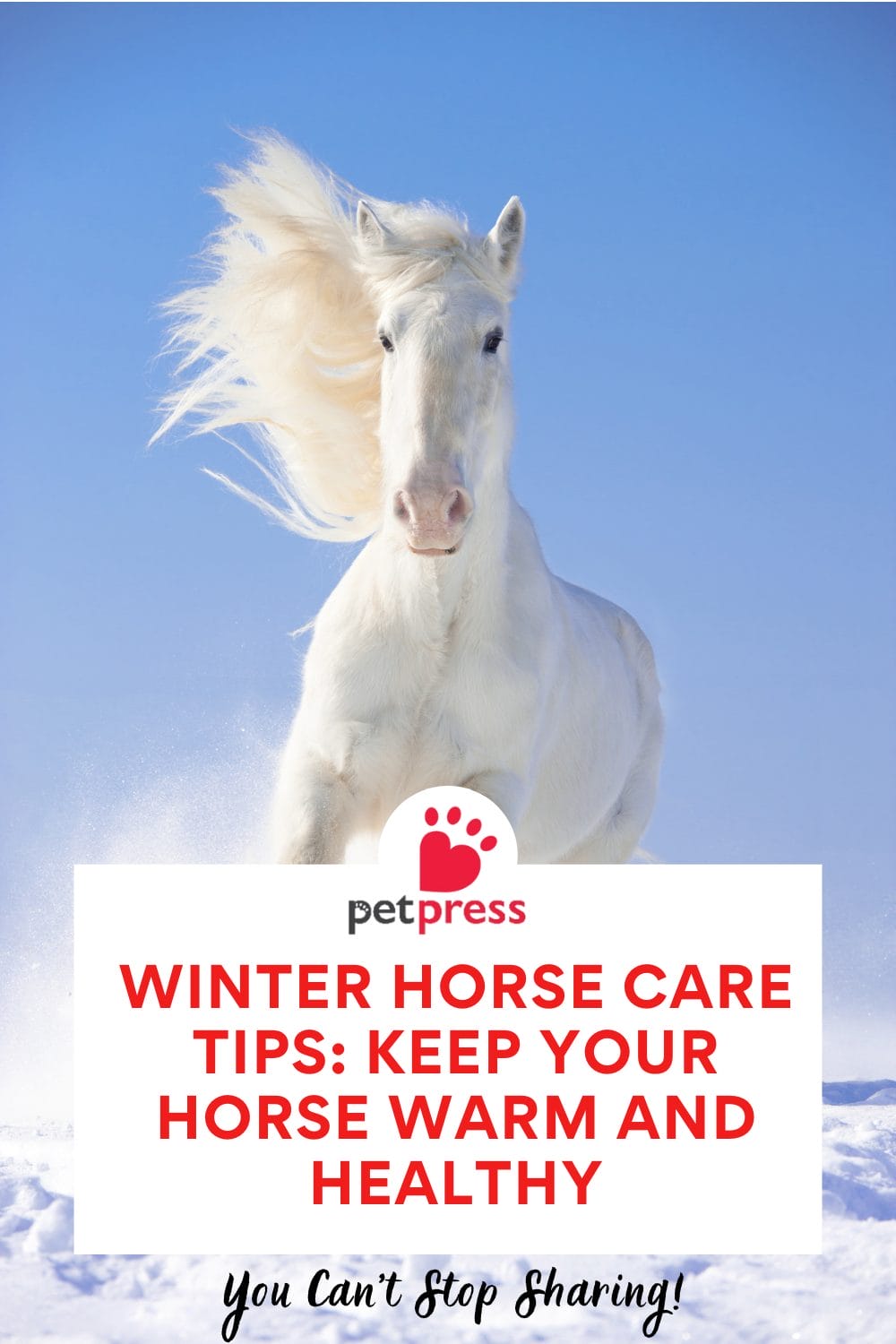
As temperatures drop and the ground freezes, your horse’s daily needs change dramatically.
Just like us, horses feel the effects of winter—and while they can tolerate cold better than humans, they still need proper care to stay warm, healthy, and happy.
If you’re wondering how to navigate the frosty months with your four-legged friend, you’re in the right place.
In this blog, we’ll walk you through essential winter horse care tips, including how to keep your horse warm, what to feed during winter, mistakes to avoid, and more.
Why Winter Care is Critical for Horses
Horses are incredibly hardy animals. Thanks to their thick winter coats and high metabolism, they can withstand chilly temperatures far better than we can.
However, extreme cold, icy conditions, and a lack of proper nutrition can still lead to serious health concerns, such as:
- Weight loss
- Dehydration
- Frostbite on extremities
- Respiratory problems
- Colic caused by poor forage intake
That’s why cold weather horse care isn’t just about warmth—it’s about supporting overall health through a combination of shelter, nutrition, hydration, grooming, and exercise.
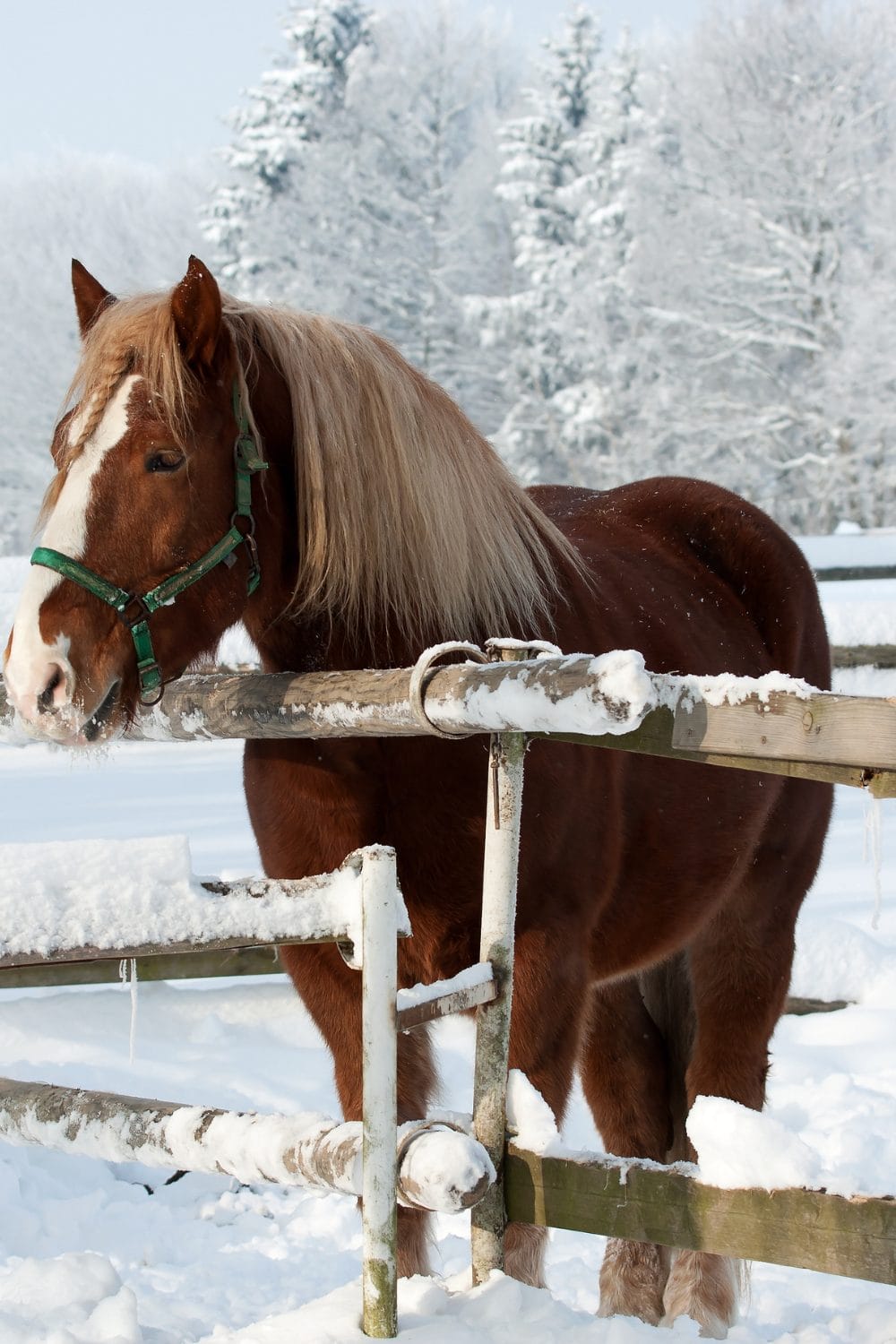
Tips to Keep Your Horse Warm and Healthy in Winter
Provide Adequate Shelter
One of the best ways to protect your horse from winter elements is to provide a well-ventilated, dry shelter.
A three-sided run-in shed is often sufficient, but if your horse is clipped, elderly, or has health issues, a fully enclosed barn may be necessary.
- Make sure the shelter blocks wind, rain, and snow.
- Clean it regularly to avoid damp bedding, which can cause chills and hoof problems.
- Ventilation is key—stale air can lead to respiratory issues.
Use Blankets Wisely
Not all horses need blanketing, but some do. Consider blanketing if:
- Your horse is clipped.
- Your horse is older or underweight.
- Temperatures drop below 20°F, especially with wind chill.
Always use breathable, waterproof blankets and change them if they become wet or soiled. Ill-fitting or dirty blankets can do more harm than good.
Maintain Body Condition
Winter is not the time for your horse to lose weight. Monitor their Body Condition Score (BCS) regularly.
Feel under the blanket for fat cover, especially along the ribs, back, and hips.
Weight loss during winter can lead to serious complications, especially in senior horses or those with metabolic issues.
Maintaining proper body condition also helps with insulation—fat provides natural warmth.
Increase Forage Intake
Horses generate heat through digestion—especially of fiber. That’s why feeding more hay in winter is essential.
- Provide at least 2% of body weight in hay daily.
- Offer small, frequent meals to promote consistent heat production.
- Avoid moldy or dusty hay to prevent respiratory issues.
Feeding hay continuously helps maintain body temperature, which is especially important during cold snaps.
Ensure Clean, Unfrozen Water
One of the most overlooked yet critical horse care tips for winter is ensuring proper hydration. Horses often drink less when water is icy cold or frozen.
- Use heated water buckets or automatic waterers to keep water above 45°F.
- Break ice multiple times a day if heaters aren’t an option.
- Add electrolytes or warm soaked beet pulp to encourage drinking.
Dehydration in horses can lead to impaction colic, which is more common in winter than you might think.
Keep Them Moving
Exercise helps horses stay warm, fit, and mentally stimulated during the winter months.
- Turn them out daily if footing is safe.
- Encourage movement with hay piles spread around the field.
- Light work or groundwork indoors can also help during icy weather.
If turnout isn’t possible, regular stall time should include hand-walking or short training sessions to prevent stiffness and boredom.
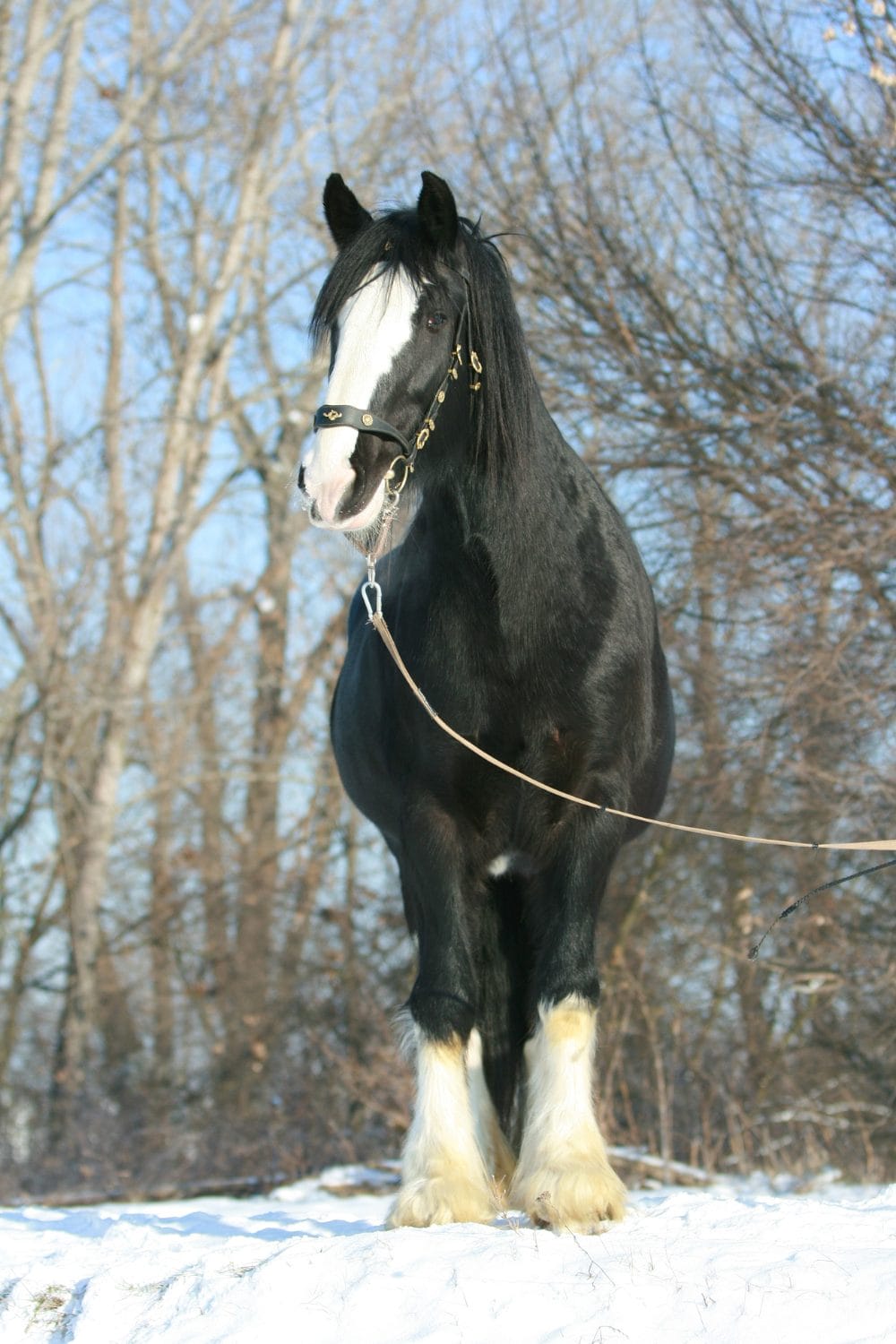
Hoof Care Doesn’t Stop
It’s a common myth that hoof care can be relaxed during winter. On the contrary, regular farrier visits are still necessary.
- Trim hooves every 6-8 weeks to avoid cracking and imbalance.
- Ask your farrier about snow pads or traction devices if your horse wears shoes.
- Pick hooves daily to prevent thrush and ice buildup.
Check on Grooming and Coat Health
A thick winter coat doesn’t mean you can ignore grooming. Regular brushing helps remove sweat, dirt, and dead hair, preventing skin infections.
- Use a curry comb to stimulate oil production.
- Watch for rain rot, mud fever, or lice—common winter skin issues.
- Keep blankets off for part of the day so skin can breathe.
Mistakes to Avoid in Winter Horse Care
Even the most experienced owners can make mistakes during the colder months. Here are some pitfalls to steer clear of:
Ignoring Weight Loss
If your horse is blanketed, you might not notice weight loss until it’s serious. Check body condition weekly.
Letting Water Freeze
Frozen buckets lead to decreased water intake and increased colic risk. Heated buckets are worth every penny.
Over-blanketing
Too many layers or heavy blankets in mild weather can cause sweating, leading to chills once the horse cools down.
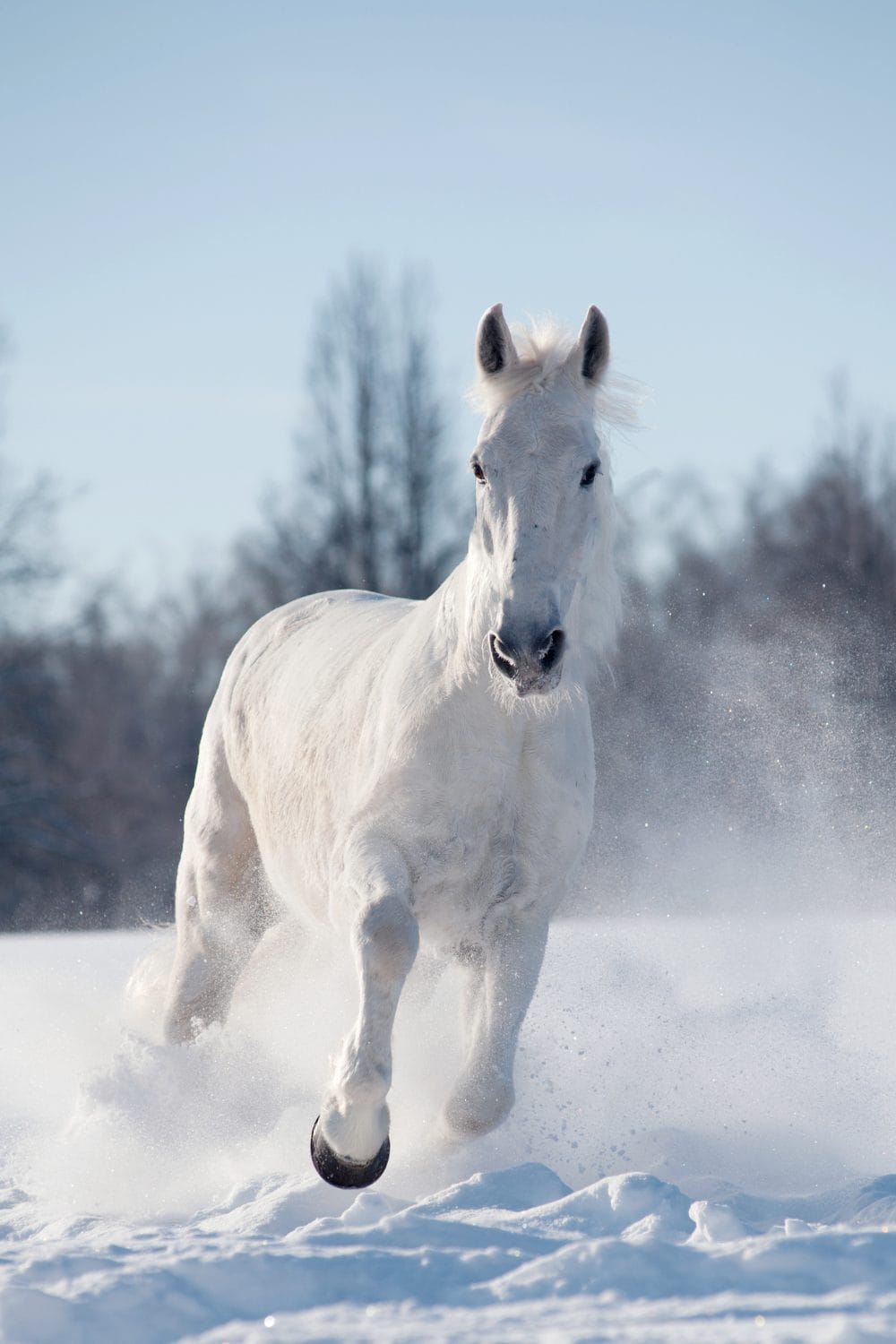
Assuming Horses Can Always Handle Cold
While many horses can tolerate low temperatures, wind, rain, and poor nutrition can change that fast.
Winter Foods to Consider for Horses
Your horse’s metabolism ramps up in winter, which means they need more fuel to stay warm. Here are some excellent feed options to consider:
High-Quality Hay
Your number one winter feed. Look for leafy, green hay with minimal dust and mold. Alfalfa can be added for more calories and protein.
Beet Pulp
Soaked beet pulp is a great source of digestible fiber and water. It’s perfect for senior horses or those wo need to gain weight.
Bran Mashes (Occasionally)
Once a week, a warm bran mash can provide extra hydration and comfort—but don’t overdo it. Sudden changes in diet can cause digestive upset.
Oil Supplements
Vegetable oils or flaxseed oil can increase calorie intake without bulk, perfect for hard keepers in the winter.
Electrolytes
Adding electrolytes to feed or water encourages drinking and supports hydration.
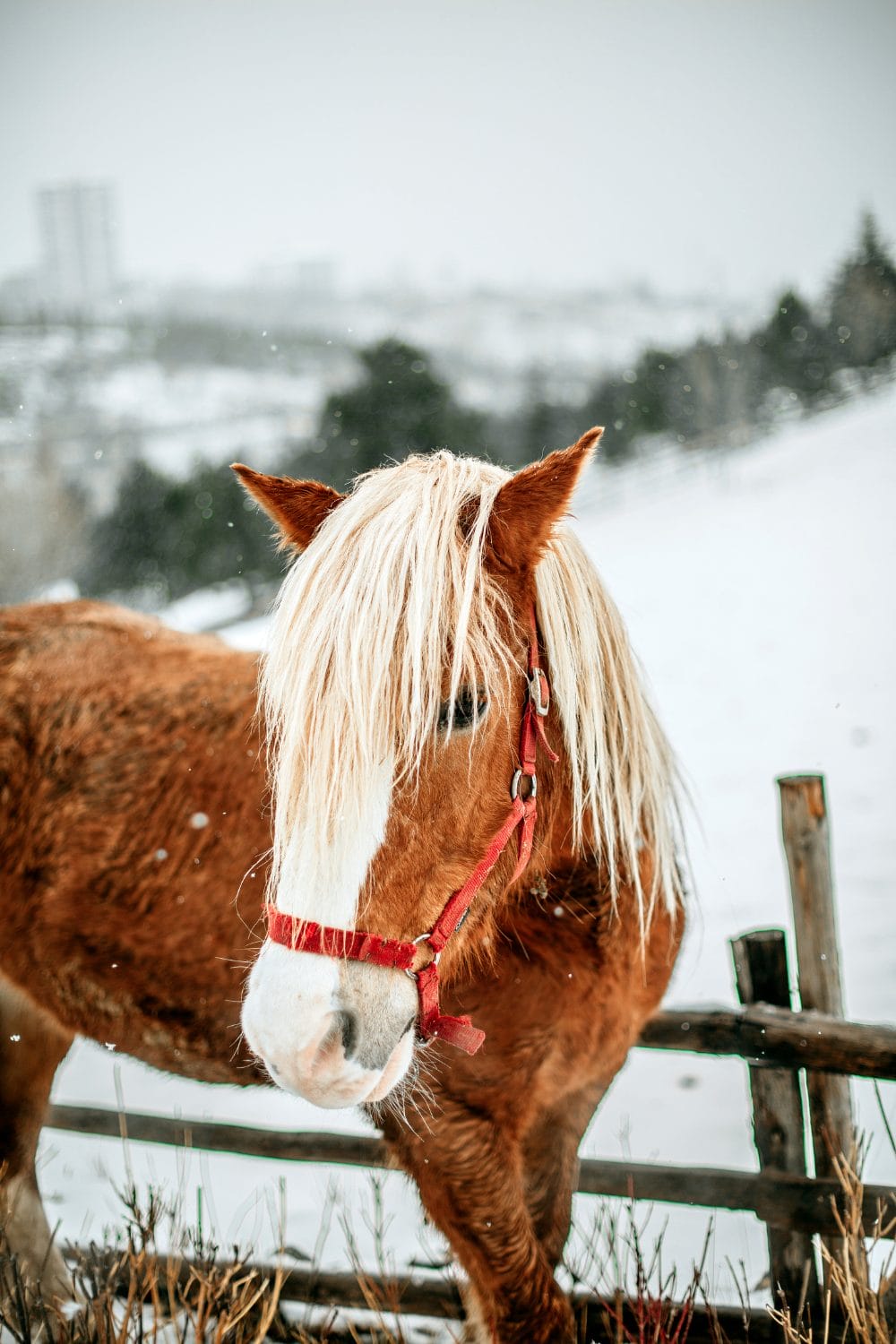
Conclusion
Winter Horse Care Tips isn’t just about throwing on a blanket and calling it a day.
It’s about paying attention to your horse’s nutrition, shelter, exercise, and emotional well-being.
By following the best winter horse care tips, you can ensure your equine partner not only survives but thrives through the cold season.
Whether you’re a new horse owner or a seasoned equestrian, proactive care will make all the difference.
Remember: a warm horse is a happy horse—and a happy horse makes for a happy rider.
FAQs About Winter Horse Care Tips
No, not all horses need blanketing. Healthy horses with thick winter coats and adequate shelter usually manage well without them. However, clipped horses, seniors, or those in poor condition may require winter horse blankets for added warmth.
A general rule is at least 2% of the horse’s body weight in hay per day. In colder weather, this amount may need to increase by 20–30% to help maintain body temperature.
Yes, many horses can safely stay outside in the snow as long as they have access to a dry, wind-blocking shelter, fresh water, and plenty of hay. Always monitor their behavior and condition for signs of stress or discomfort.
Absolutely. As long as footing is safe and your horse is fit and healthy, winter riding is beneficial. Just be sure to properly cool down your horse afterward to prevent chills.
Shivering, lethargy, cold ears, and huddling are all signs your horse may be too cold. If you notice these, check for wet coats, provide more forage, and consider blanketing or moving them to a warmer shelter.
- How to Celebrate a Dog’s First Birthday on a Budget: 2026 Guide - February 18, 2026
- Best Shampoo for Sensitive Skin Dog Grooming: 2026 Guide - February 12, 2026
- 40+ Aesthetic Names for White Dogs (2026 Unique & Rare List) - February 6, 2026


GIPHY App Key not set. Please check settings